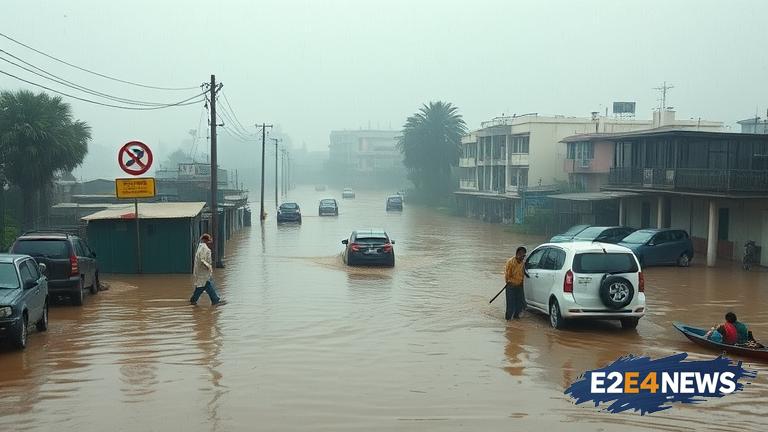Pakistan is currently experiencing one of the worst humanitarian crises in its history, with heavy rains and floods affecting over 30 million people across the country. The floods have caused widespread destruction, with thousands of homes, roads, and bridges destroyed or damaged. The government has declared a state of emergency and is working to provide aid to those affected. However, the scale of the disaster is massive, and the response efforts are being hindered by the difficult terrain and lack of resources. The floods have also had a devastating impact on the country’s agriculture sector, with crops and livestock destroyed, leading to concerns about food security. The international community has pledged support to Pakistan, with several countries promising aid and assistance. The United Nations has also launched an appeal for funding to support the relief efforts. Despite the challenges, the people of Pakistan are showing remarkable resilience and solidarity, with many coming together to help those in need. The government has also established a relief fund to support the affected communities. The floods have also highlighted the need for climate action, with many experts pointing to the role of climate change in exacerbating the disaster. The Pakistani government has pledged to take steps to address the issue, including investing in climate-resilient infrastructure and promoting sustainable agriculture practices. The international community has also called for greater action to address the global climate crisis. The floods have also had a significant impact on the country’s economy, with estimates suggesting that the damage could run into billions of dollars. The government has announced plans to provide financial support to those affected, including compensation for damaged homes and businesses. The relief efforts are ongoing, with thousands of troops and aid workers deployed to affected areas. The government has also established a network of relief camps, providing shelter, food, and medical care to those in need. However, the situation remains dire, with many people still stranded or without access to basic necessities. The government has appealed for international support, including donations of food, medicine, and other essential supplies. The people of Pakistan are grateful for the support, but more is needed to address the scale of the crisis. The floods have also raised concerns about the country’s preparedness for natural disasters, with many experts calling for greater investment in disaster risk reduction and management. The government has pledged to take steps to improve the country’s disaster response capabilities, including investing in early warning systems and emergency preparedness plans. The international community has also offered support to help Pakistan build its capacity to respond to natural disasters. The situation in Pakistan is a reminder of the importance of global solidarity and cooperation in the face of humanitarian crises. The world must come together to support the people of Pakistan and help them rebuild their lives and communities.





